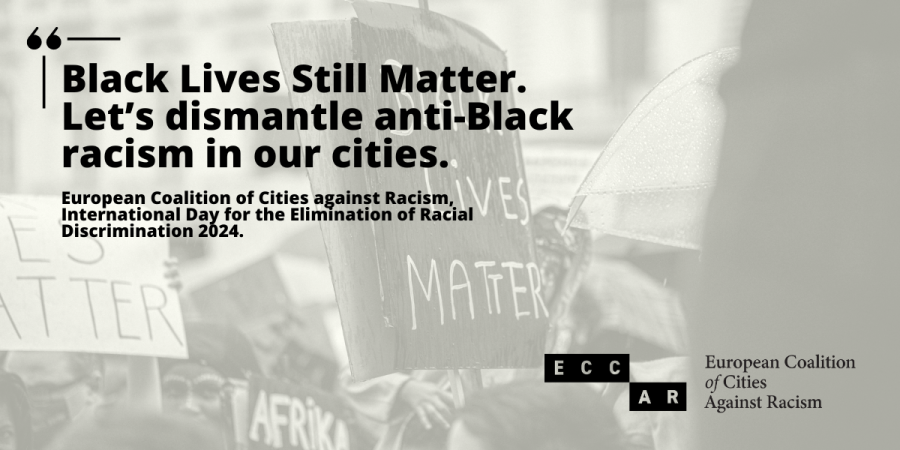
Today, as we commemorate the International Day for the Elimination of Racial Discrimination, the European Coalition of Cities against Racism underscores the pivotal role of cities in dismantling anti-Black racism and promoting inclusivity, recognizing the imperative of effectively implementing the International Decade for People of African Descent ath the local level.
Spotlight on the International Decade for People of African Descent
In 2024, the focus of the International Day for the Elimination of Racial Discrimination is "A Decade of Recognition, Justice, and Development: Implementation of the International Decade for People of African Descent (2015-2024)," emphasizing the urgent need to address historical injustices to promote and protect the rights of individuals of African descent worldwide, recognizing their unique challenges and calling for systemic change. It underscores the ongoing struggle against racial discrimination and the enduring impacts of slavery and colonialism. The majority of people of African descent reside in cities, this is where policies directly impact their lives. Cities and local authorities are therefore crucial players to proactively combat anti-Black racism and uphold principles of equality and human dignity locally. It is crucial that the objectives of the Decade are not only embraced at the international and national levels but also implemented locally.
Situation of People of African Descent in the EU
Recent studies, such as the Being Black in the EU report published by FRA in 2023, highlight alarming trends of increasing racism and discrimination against people of African descent in Europe. Results show that despite legal frameworks in place, “almost half of people of African descent in the EU face racism and discrimination in their daily life – a rise since 2016”. This underscores the urgent need for comprehensive action at all levels of governance to tackle racial discrimination and harassment against people of African descent. Access the full FRA report Being Black in the EU here.
What can Cities do?
Initiated by the cities of Heidelberg and Bologna in 2020, ECCAR's Working Group on Anti-Black Racism serves as a vital platform for peer-to-peer exchange and the sharing of good practices in countering anti-Black racism at the local level. Through the Working Group activities cities are provided with concrete support to implement the International Decade for People of African Descent and promote the equal participation where Black European citizens are at home - in the cities.
One measure taken by many members of the Working Group was the realization of the Black History Month. Another good example of local implementation of the International Decade is the German city of Berlin, which has adopted the Decade through a Senate resolution. This enabled people from the administration and from Black and African self-organizations to come together, consult with each other, and jointly develop a catalog of measures for the concrete implementation of the Decade on the ground. In the recommendations for politics and administrations published in the framework of the German study Afrozensus you will find further helpful impulses to tackle anti-Black racism at the local level.
Black History in European Cities as a Model for Action to counter Anti-Black Racism
February marked the annual Black History Month globally. Celebrating and honoring Black European history is crucial for promoting equal participation of people of African descent in our cities. Therefore, countering anti-Black racism locally also involves making Black history visible, integrating the realities of Black lives into European and local historiography. Realizing activities in the framework of the Black History Month serves as a powerful tool to implement the 9th pillar of ECCAR’s 10 Points Action Plan to ensure fair representation and promote city dwellers’ diverse cultural expression and heritage through cultural programs, collective memory, and interculturality in city life. For more information on specific good practices implemented during the Black History Month in the ECCAR cities Heidelberg, Cologne, and Bologna, click here.
